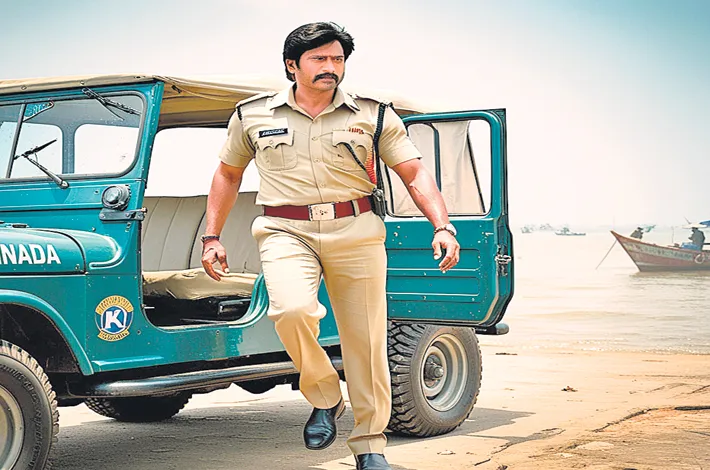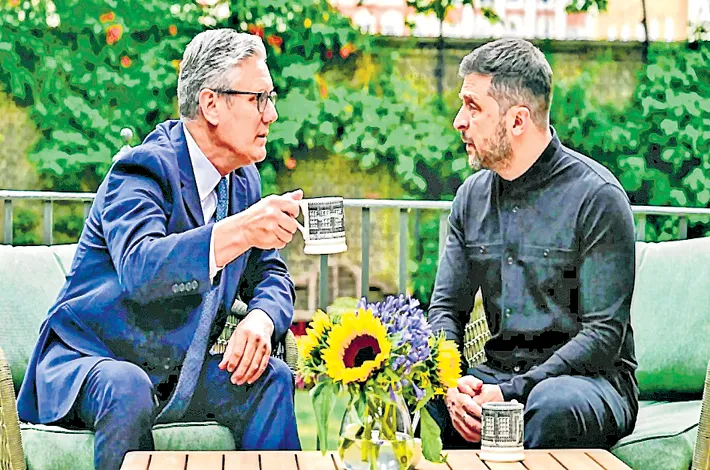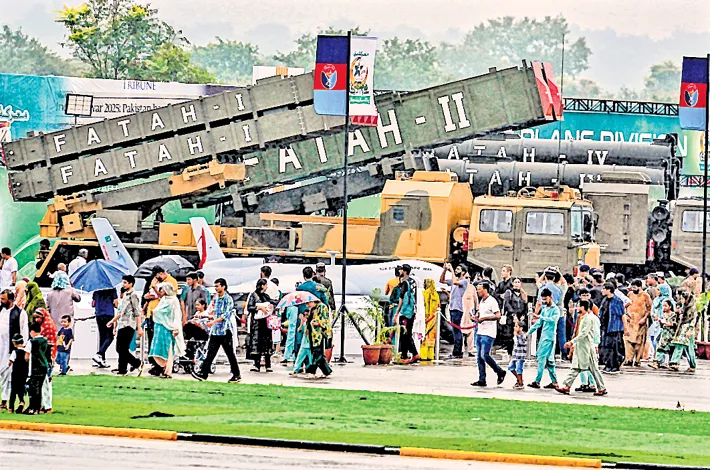The Kakinada Cipher
15-06-2025 12:00:00 AM

The humid air of Kakinada clung to Inspector Arjun Rao like a second skin as he stepped out of his jeep, the salty tang of the Bay of Bengal heavy in the breeze. It was past midnight, and the narrow streets of the port city were eerily quiet, save for the distant hum of fishing boats returning to the harbor. The call had come an hour ago: a body found in the abandoned rice mill on Godari Gunta Road. Arjun adjusted his khaki cap, his sharp eyes scanning the scene. Something about this case already felt wrong.
The mill loomed ahead, its rusted tin roof glinting under the moon. Constables milled about, their flashlights cutting through the darkness. Sub-Inspector Lakshmi, Arjun’s trusted aide, approached him, her face grim. “Sir, it’s bad. The victim… it’s Vikram Reddy, the shipping magnate.”
Arjun’s jaw tightened. Vikram Reddy was no ordinary man. His company, BayStar Shipping, controlled half of Kakinada’s port trade. Rumors swirled about his ties to smuggling—rice, gold, maybe worse. Arjun had crossed paths with him once, at a charity gala, where Vikram’s polished smile couldn’t hide the cold calculation in his eyes.
“Show me,” Arjun said.
Inside the mill, the air was thick with dust and the metallic scent of blood. Vikram lay sprawled on the cracked concrete floor, his silk shirt torn, a single bullet hole in his chest. His eyes were wide open, frozen in shock. Nearby, scrawled in chalk on the wall, was a strange symbol: a circle with three intersecting lines, like a warped trident. Arjun crouched, his flashlight tracing the lines. It wasn’t random graffiti. It meant something.
“Any witnesses?” he asked Lakshmi.
“None, sir. The watchman says the mill’s been locked since sunset. No signs of forced entry.”
Arjun’s mind raced. A locked mill, a dead tycoon, and a cryptic symbol. This wasn’t a robbery gone wrong. This was deliberate.
By dawn, Kakinada was buzzing with news of Vikram’s murder. The local press swarmed the police station, and Arjun’s phone rang nonstop with calls from higher-ups demanding answers. He ignored them, focusing on the evidence. Vikram’s phone, recovered from the scene, was locked with a pattern code. The forensics team found no fingerprints, no bullet casing, no trace of the killer. The symbol, though, nagged at Arjun. He’d seen it before, but where?
He drove to the port, where BayStar’s office overlooked the docks. The staff were shaken, but no one seemed surprised. Vikram had enemies—rival traders, scorned partners, even politicians. Arjun interviewed Vikram’s assistant, Priya, a sharp-eyed woman in her thirties. She was nervous, her fingers twisting a pen as she spoke.
“He was tense lately,” Priya admitted. “Last week, he got a call that upset him. He wouldn’t say who it was, but he kept muttering about ‘the code’ and ‘keeping it safe.’”
“Code?” Arjun pressed.
“I don’t know, sir. He was secretive. But… he met someone at the old lighthouse two nights ago. I overheard him on the phone.”
The lighthouse. It was a crumbling relic on the edge of Kakinada’s coast, rarely visited. Arjun thanked Priya and headed there, the symbol still burning in his mind.
The lighthouse smelled of mildew and sea rot. Its spiral staircase creaked under Arjun’s weight as he climbed to the top. The view was stunning—endless ocean stretching to the horizon—but Arjun wasn’t here for scenery. He searched the platform, his eyes catching on a faint carving in the rusted railing: the same trident-like symbol. Below it, scratched into the metal, were the numbers 17-4-9.
A code? Coordinates? Arjun jotted them down, his pulse quickening. Back at the station, he cross-referenced the numbers with Vikram’s phone records. Nothing. Then, on a hunch, he tried the numbers as a pattern lock on Vikram’s phone. The screen flickered to life.
The phone’s gallery held a single photo: a grainy image of a shipping container at Kakinada port, marked with the same symbol. Arjun zoomed in. The container number was BYS-1749. The pieces were falling into place.
That night, Arjun and Lakshmi staked out the port. The container was in a restricted area, guarded by armed men who didn’t look like typical dockworkers. Arjun recognized one—a known enforcer for the local smuggling ring, the Trident Syndicate. The symbol wasn’t just a clue; it was their mark.
As they watched, a black SUV pulled up. A man stepped out, his face obscured by a hood. He handed a briefcase to the guards, who opened the container. Inside were crates stamped with chemical warnings. Not rice. Not gold. Something far worse.
Arjun signaled Lakshmi. They moved in, guns drawn. The guards scattered, but the hooded man was fast. He bolted toward the docks, Arjun in pursuit. The chase ended at the water’s edge, where the man turned, his face finally visible under the port lights. It was Suresh Naidu, Vikram’s business partner.
“You don’t understand,” Suresh hissed, clutching the briefcase. “This is bigger than Vikram. Bigger than Kakinada.”
“Drop it,” Arjun ordered.
Suresh laughed, a hollow sound. “The Trident never stops. Kill me, and another takes my place.”
Before Arjun could react, Suresh tossed the briefcase into the sea and drew a gun. A shot rang out—not from Suresh, but from Lakshmi, who’d flanked him. Suresh crumpled, blood pooling on the dock.
The briefcase was recovered, its contents a ledger detailing shipments of illegal chemicals to international buyers. The Trident Syndicate was smuggling precursors for synthetic drugs, with Vikram as their frontman. He’d tried to back out, and they’d silenced him. The symbol was their signature, a warning to others.
Arjun stood on the dock as dawn broke, the ledger in his hands. Suresh’s words echoed: The Trident never stops. The case was closed, but the syndicate was still out there, its roots deep in Kakinada’s underbelly. Arjun lit a cigarette, staring at the horizon. This wasn’t over.
Not by a long shot.








